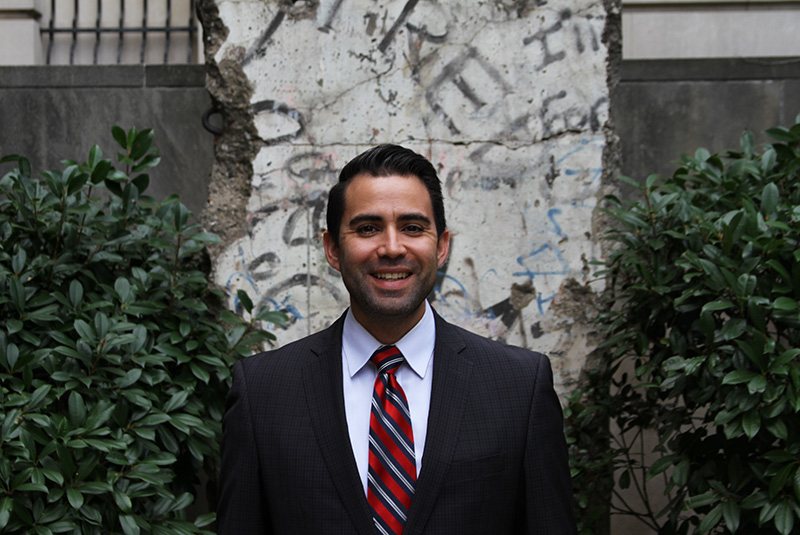Gaining a Competitive Edge

Yonatan Holz
MIPP '19
DIA '21
Q: What encouraged you to apply to Johns Hopkins SAIS?
A: I learned about Johns Hopkin SAIS from friends in the US government. After a 13-year military career—mostly overseas—I was overwhelmed with the idea of finding a graduate program that met all of my requirements. The school had to have a large international body of students, it had to be respected in the public and private sector alike, and its faculty and academic programs needed to be international recognized. I decided to reach out to an admissions representative from the school, who took considerable care to speak with me and answer all of my questions. They also linked me with current students and encouraged me to attend in-person classes to get a better idea of what the programs looked like. In the end, the school’s individual approach, which caters to each individual student, was the decisive factor in my choice.
Q: What have you considered to be some of the major benefits of your Johns Hopkins SAIS degree as a Master of International Public Policy (MIPP) Alumnus?
A: Access to a world-class faculty and student body is by far the biggest benefit I have enjoyed as a MIPP alumnus. My professional writing, research, and critical thinking dramatically improved due to my professors; this has helped highlight my efforts with my employer, often resulting in being selected to lead projects with much higher visibility. Also, my world-view has broadened thanks to the incredible body of young and international students. Daily, I was humbled by these classmates, who undoubtedly will go on to solve some of the most pressing global issues after graduation.
Q: What encouraged you to continue pursuing your studies through the Doctor of International Affairs (DIA) degree?
Q: Without a doubt, my decision to apply to the Doctor of International Affairs program stemmed from the guidance of my professors and mentorship from the professional staff. It is often my tendency to take the path of least resistance, but this time I was inspired by my professors to explore un-answered questions in a deeper and more meaningful way. They encouraged me to solve problems in my field, and in the end maybe—just maybe—contribute to making this world a safer place for everyone.
Q: What has been one of your favorite experiences studying at Johns Hopkins SAIS?
A: There are way too many highlights to choose from, but some of my favorite memories include: meeting fellow alumni such as Wolf Blitzer and Chinese Ambassador to the US, Cui Tiankai, at school events; the annual international student dinners; in-class debates focused on topics such as disinformation, grand strategy, and history; and lastly, Kissinger Seminar dinners with Michele Flournoy and Ambassador William Burns.
Q: Could you please tell us about your current career?
A: I am currently working at the Department of Energy. Though I have not finished the DIA program, my leadership continues to support my education at Johns Hopkins SAIS because of the value it provides to the Department and to greater national security priorities.
Q: Do you have any advice for incoming students?
A: The best advice I can give anyone is come with an open mind, put yourself out there and introduce yourself to everyone. Lasting relationships are made inside and outside the classroom. Some of the most thought-provoking conversations with classmates and professors happen at bars or coffee shops—now via virtual events.
Back to Student Stories